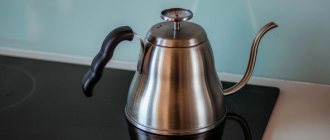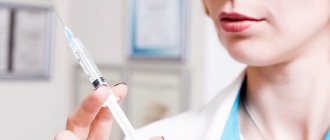List of what you can eat before donation
- Cottage cheese;
- Lean meat (such as poultry) and beef (in small quantities);
- Root vegetables (potatoes, beets, carrots, etc.);
- Self-grown fruits, however, should not be too sour;
- Mineral water and not too sweet compotes and fresh juices;
- Egg whites. The recommended amount is no more than one per day;
- Lean fish (such as pike perch, herring or cod);
- A simple soup made with vegetable broth.
Before you go to donate blood, plasma or platelets, you need to drink one glass of a natural drink. If this is not done, blood pressure may change sharply, which will lead to the development of a hypovolemic reaction. Before donating blood, the donor's food should enter the body approximately 2-3 hours before the procedure. This will help you avoid weakness and the risk of fainting.
How to eat before donating blood?
- You must follow a special diet for 2-3 days before donating blood. It is necessary to exclude fatty, fried, spicy, smoked, mayonnaise, ketchup, nuts, seeds, mushrooms from the diet;
- On the morning of donating blood, you should not eat dairy products, eggs, or butter;
- It is recommended to eat boiled cereals, pasta in water without oil, vegetables, fruits (except bananas);
- It is recommended to drink sweet tea with jam, fruit drinks, compotes, and mineral water. The donor needs to increase the volume of fluid consumed to 1.5 - 2 liters.
Nutritional Features
Before donating blood, drinking alcohol and smoking are prohibited for two days.
You also need to avoid spicy, fatty, fried, smoked foods . It is recommended to eat foods rich in carbohydrates: fruits, vegetables, cereals, pasta.
After the procedure, you need to regain your strength. To do this, eat foods rich in proteins, complex carbohydrates, fruits, nuts, dried fruits. It is recommended to focus on plant-based foods.
If we are talking about whole blood donation, then it will take about 30-40 days for complete recovery.
If a person donates individual components, for example, plasma, the recovery time will be shorter - about 5-6 days. During this time, it is recommended to adhere to the general rules for donors.
How to prepare for donating blood?
- Be sure to get enough sleep!
- BREAKFAST IS A MUST ! On the day of blood donation, it is recommended - sweet tea, jam, bread, pastry, crackers, dried cereals, boiled cereals, pasta in water without oil, juices, fruit drinks, compotes, mineral water, vegetables, fruits (except bananas);
- Consume an increased amount of liquid (fruit drinks, juices, compotes, mineral water) up to 1.5-2 liters;
- On the day of blood donation, it is necessary to exclude dairy products (cottage cheese, butter, milk), eggs, fatty foods, fried foods from the diet;
- Two days before donating blood, you should not drink alcohol;
- At least 5 days must pass after menstruation;
- For three days you should not take medications containing aspirin and analgin;
- One hour before donating blood, you should refrain from smoking;
- There is no need to plan to donate blood immediately before exams, competitions, or during a particularly intensive period of work;
Contraindications to donation
According to the order of the Ministry of Health dated September 21, 2001, there are absolute and relative prohibitions for donation.
Absolute contraindications:
- infectious diseases (AIDS, syphilis, brucellosis, etc.);
- diseases caused by parasites (toxoplasmosis, filariasis, etc.);
- somatic diseases of various organs (kidneys, liver, heart, lungs, thyroid gland, etc.);
- oncology;
- hypertension II-III degree;
- mental illness;
- recent operations on various organs;
- skin diseases (psoriasis, eczema, lupus, dermatitis, etc.);
- organ transplantation.
Temporary contraindications:
- Diet before donating blood - important recommendations for accurate results
- abortions;
- tattoos;
- acupuncture;
- travel to foreign countries (especially to Africa);
- communication with sick people;
- recent illnesses (ARVI, influenza, etc.);
- removal of a tooth;
- allergic rashes;
- VSD;
- pregnancy;
- period of menstruation;
- taking antibiotics, analgesics;
- consumption of alcoholic beverages;
- vaccinations;
- change in test results.
Time limits vary. For example, after an abortion you cannot donate blood for six months, after a sore throat - for a month, after a tooth extraction - for 10 days.
What to do after donating blood?
- Immediately after passing, sit relaxed for 10-15 minutes;
- If you feel dizzy or weak, please contact staff. The easiest way to overcome dizziness is to lie on your back and raise your legs above your head, or sit down and lower your head between your knees.
- Avoid smoking for an hour after blood donation;
- Do not remove the bandage for 3-4 hours, try not to get it wet. You can take a shower or bath the next day (the risk of infection of the injection site is minimal, but it is better to be careful).
- Significant physical activity during the day is contraindicated;
- Avoid drinking alcohol for 24 hours;
- Try to eat plentifully and regularly for two days;
- Drink increased amounts of fluid for 2 days;
- Vaccinations after donating blood are permitted no earlier than 10 days later.
- Complete restoration of blood composition occurs in 30-40 days.
The rate of recovery of different blood components is different. Red blood cells are restored in the donor’s body within 4-6 weeks, leukocytes - at the end of the first week, platelets - within 3-4 days. Plasma is restored within 1-2 days.
To restore your blood composition faster, it is recommended to drink a lot of fluids - juices, tea, compotes.
Proper nutrition is necessary: the donor’s diet should always contain protein, which determines the level of hemoglobin in the blood. Products containing protein - beef, beef liver, all legumes (beans, peas, lentils), beets, buckwheat.
Beverages
The consumption of liquids by the future donor deserves special attention. As practice shows, they affect test results no less strongly than food consumption.
The list of permitted drinks that can be used for 3-4 days before donating blood includes:
- Regular filtered or boiled water. It will not cause harm to the body, but it will not improve blood quality indicators either;
- Tea . It is best not very strong - for example, green. Sugar can be added sparingly;
- Compote. Any types of compotes made from dried fruits are suitable;
- Morse . In limited quantities and not very sour;
- Mineral water . It is advisable to focus on standard types of these products and not choose medicinal ones, saturated with certain substances;
- Juices . It is preferable to use fresh fruit and vegetable juices made with your own hands from non-acidic varieties of products.
Prohibited drinks
- Alcohol . In any form, from beer to vodka. A number of nutritionists recommend drinking 100 grams of red wine per day, but after the procedure to speed up its recovery;
- Sweet carbonated drinks . Coca-Cola, Sprite, similar products with flavors and other additives are strictly prohibited;
- Coffee . It is a conditionally prohibited drink, but can be used to a limited extent if it is made from natural grains and is not very strong. It is preferable to use substitutes for this drink - for example, based on chicory.
Today is International Blood Donor Day, and we congratulate everyone who has donated blood at least once! You are magical people, ready at any time of the year, on weekends and even holidays, to come to the aid of patients who need emergency transfusions.
Anyone can become a donor. On our website you can sign up for the register of free blood donors. For beginners, we want to remind you once again that diet before blood donation is really important! If you eat something “harmful” the day before, your blood will be rejected and you will not help those who need it and will waste your personal time.
The head of the department of transfusiology, procurement and processing of stem cells of the National Medical Research Center DGOI named after A. Dmitry Rogachev Pavel Trakhtman. Here are the main points.
There may be no special preparation for donating blood. Just as there should not be strict dietary restrictions. But it is worth remembering that on the eve of blood donation it is recommended not to eat a lot of the following foods: - fast food - fatty - fried - chocolate - nuts and dates - bananas
The reason for such restrictions is simple - consuming large amounts of fat affects the composition of the blood and it is impossible to qualitatively separate it into components. In addition, eating fatty foods before blood donation may interfere with the results of some tests.
After drinking alcohol, you should refrain from donating blood for the next 48 hours.
You cannot donate blood on an empty stomach! On the morning of the blood donation, be sure to have a good breakfast. Here's what you can eat for breakfast: - porridge without butter and milk - pasta - bread - pastries - crackers - vegetables - fruits (but remember bananas!)
Sweet tea with jam, juices, fruit drinks, compotes, and mineral water are also recommended. Before taking the test, you need to drink enough liquid, at least two glasses.
By the way, the diet does not change depending on whether you are going to donate whole blood or its components.
The Gift of Life Foundation also has many donors among its employees. We conducted a small survey and it turned out that 63% of employees on the eve of donation prefer sweet tea with biscuits, cookies or crackers; 17% eat oatmeal with dried fruits; 14% - pasta with herbs; 6% - fruits (apples, pears).
“My breakfast on the day of donating blood is not very different from usual,” said Alexander Saulenko, manager of the fund’s Donation Boxes project. — It’s just that if every day I eat pancakes with cottage cheese or buckwheat with an egg, then in the morning before donation I can eat pancakes with jam or buckwheat porridge, boiled in water, with salad. And drink tea with drying or cookies. I don't eat meat at all, but I do have fish in my diet. In general, I am already an experienced donor, I have donated blood 30 times.”
We once again congratulate all donors on their holidays. Thank you for helping! We wish you good donor health and successful blood donations!
After donation:
- Sit quietly in the donor lounge for 10-15 minutes.
- If you feel dizzy, contact your medical staff. The easiest way to help yourself is to lie down and raise your legs above your head, or sit down and lower your head between your knees. Never try to walk or drive a car if you feel dizzy!
- Do not remove the bandage for 3-4 hours and try not to get it wet. This will prevent bruising (if a bruise appears, apply a bandage with heparin ointment or troxevasin at night).
- Avoid heavy physical and sports activities, lifting heavy objects, including shopping bags, on this day.
- Eat well and regularly for 2 days after donation and drink at least 2 liters of liquid per day: juices, water, weak tea. Drinking alcohol is not recommended.
In order to preserve the health of the donor and save the donor resource, medical personnel monitor compliance with the intervals between whole blood donations. After donating whole blood, the donor is given 60 days to fully restore the blood system and any donations during this period are impossible, as they can lead to deterioration of health, including anemia and a decrease in the level of total protein.
Before the donation procedure:
- Do not come to the blood service facility if you feel unwell (chills, dizziness, headache, weakness).
- Do not smoke an hour before donation.
- Do not drink alcohol 48 hours before donation.
- Two days before donation, avoid physical activity, incl. playing sports.
- Three days before donation, stop taking analgesics and aspirin, as well as medications containing them (these substances impair blood clotting).
- On the eve and on the day of blood donation, it is prohibited to consume fatty, fried, spicy and smoked foods, sausages, as well as meat, fish and dairy products, poultry, eggs and butter (including vegetable oil), chocolate, nuts and dates, avocados, beets, bananas and citrus fruits, sweet carbonated drinks, incl. energy.
- Be sure to get enough sleep and eat a light breakfast (sweet tea with jam, juices, fruit drinks, compotes, mineral water, bread, crackers, dried cereals, boiled cereals, pasta in water without oil, vegetables and fruits, EXCEPT avocados, beets, tomatoes, bananas and citrus fruits ). There is no need to donate blood on an empty stomach!
- When examined by a doctor before donation, answer his questions frankly and do not hide information about medications taken and past diseases.
Donor mode when donating blood (plasma)
- NUTRITION
2 days before donating blood (plasma), drinking alcoholic beverages is contraindicated.
The night before and on the day of blood (plasma) donation, you should not eat fatty, spicy and fried foods, dairy (fermented milk) products: smoked meats, lard, fatty meats, butter and sunflower oil, sour cream, milk, kefir, cheese, cottage cheese, eggs, mayonnaise , herring, as well as chocolate, nuts, seeds, bananas, citrus fruits .
On the morning of donation, you must have breakfast with sweet tea, jam, bread, loaf, boiled cereals, pasta in water without oil, steamed fish, juices, fruit drinks, compote, mineral water, vegetables, fruits (except citrus fruits and bananas), It is not recommended to undergo the donation procedure on an “empty stomach”.
An approximate light breakfast for a donor: sweet porridge (possibly with the addition of honey), boiled in water without oil or boiled potatoes without oil, boiled fish, tea (possibly with sugar), a piece of loaf.
The donor's diet should always contain protein, which determines the level of hemoglobin in the blood. Products containing protein - meat, beets, buckwheat, lentils, beans, peas, fish, etc.
- DREAM
It is necessary to get a good night's sleep and rest before donating blood (plasma).
- SMOKING
An hour before and after blood (plasma) donation, refrain from smoking.
- DONOR HEALTH
The donor should avoid blood-borne infections. First of all, these are viral hepatitis B and C, as well as HIV infection. To avoid infection with these dangerous diseases, a person should not have casual sexual contact, and also not have sexual contact with those who belong to the so-called “risk group”; For any injections, use only disposable syringes.
- INTERVALS BETWEEN BLOOD (PLASMA) DONATIONS
Observe the established intervals between donations of blood and its components. The goal is to keep the donor healthy and to prevent blood donation from causing him any harm. Special recommendations have been developed for donors regarding the intervals between blood or plasma donations:
- after five regular blood donations, it is recommended to take a break of at least 3 months;
- After blood donation, at least 60 days must pass before the donor can donate blood again;
- after blood donation, at least 30 days must pass before the donor can donate plasma;
- After plasma donation, at least 14 days must pass before the donor can donate plasma again.
- BLOOD RESTORATION
Complete restoration of blood composition occurs after 30-40 days. The rate of recovery of different blood components is different. Red blood cells are restored in the donor’s body within 4-6 weeks, and leukocytes and platelets by the end of the first week. Plasma is restored within 1-2 days.
- RECOMMENDATIONS FOR A DONOR AFTER BLOOD (PLASMA) DONATION
In order for the blood composition to recover faster, it is recommended to drink a lot of fluids - juices, fruit drinks, compote, tea, include more vegetables and fruits in the diet, eat chocolate and take hematogen for two days after blood donation. Proper nutrition is necessary: the donor’s diet should always contain protein, which determines the level of hemoglobin in the blood. If the level of hemoglobin in the blood is low, it is recommended to take iron-containing medications for 3-4 weeks.
- AFTER BLOOD (PLASMA) DONATION IT IS NOT RECOMMENDED:
- drive a car or motorcycle for an hour, because due to emotional excitement, attention is distracted, which can lead to a traffic accident;
- within 12 hours, perform work that requires increased attention and precision (work at heights, with moving mechanisms, etc.), intensive physical training;
- refrain from smoking for an hour;
- drink alcoholic beverages within 24 hours, because may cause a sharp vascular reaction in the donor with severe complications.
IF THESE RULES ARE FOLLOWED, DONATION WILL NOT HARM YOUR HEALTH AND WILL BENEFIT PEOPLE WHO NEED IT
Head blood transfusion department Chernik V.A.
Minimum intervals between different types of donation (in days)
| Initial procedures | Subsequent procedures | |||
| blood giving | plasmapheresis | plateletpheresis | leukocytapheresis | |
| Blood giver | 60 | 30 | 30 | 30 |
| Plasmapheresis: | 14 | 14 | 14 | 14 |
| Thrombocytapheresis | 14 | 14 | 14 | 14 |
| Leukocytapheresis | 30 | 14 | 14 | 30 |
The blood service institution reserves the right to increase these intervals depending on the needs of medical organizations for certain components of donor blood. You can find out about the current need by contacting the blood service institution you are interested in or using the donor traffic light.











